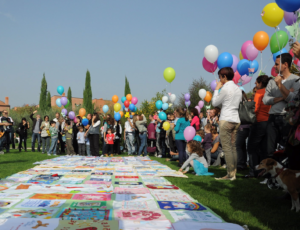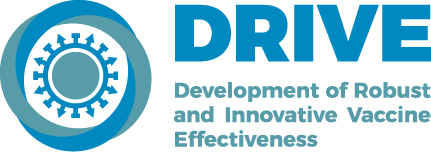 The World Health Organization has identified a life-course approach to vaccination as one of the pillars to a better health for society.
The World Health Organization has identified a life-course approach to vaccination as one of the pillars to a better health for society.
Beyond the idea of immunization focused on children or adults, it should be understood as a dynamic and interconnected process. For instance, with pregnant women, protecting the mother also means protecting the baby. With the idea of improving health care delivery in mind emerges CiaoLapo. Today we interview a representative of this organisation to learn more about their work and how has their path cross with DRIVE project’s.
What role does vaccination have to play in perinatal health and are there any particular vaccines that you focus on in your work?
Since 15 years, CiaoLapo deals with healthy pregnancy all around Italy, working on all aspects of perinatal health promotion, even if our charity was originally founded mainly for prevention and management of perinatal loss (miscarriage, stillbirth and neonatal death). Therefore, the role of vaccinations has always been considered of great importance by us: it is well known that many infectious diseases during pregnancy are associated with bad outcomes for both mothers and babies, and many of those diseases are preventable by appropriate vaccinations. Among them, influenza vaccination is of paramount importance and CiaoLapo regularly joins Italian yearly communication campaigns to promote the uptake of flu vaccine among pregnant women. Nevertheless, we can acknowledge that there is some resistance present among Italian women regarding the safety of vaccines during pregnancy and part of our activities is also to face such hesitancy and promote the spread of updated scientific data on vaccines efficacy/safety profile during pregnancy and breastfeeding.
Have discussions of vaccines been affected by Covid-19?
Definitely yes. We have been quite busy, particularly since the last months of 2021, in promoting all available scientific information regarding efficacy and safety of COVID-19 vaccines during pregnancy and breastfeeding, with particular reference to the high risk for pregnant women when the Delta variant was dominant. It was also important to underline that the relevance of influenza vaccine should not be overlooked due to the global concern with COVID. More recently discussion has moved to the opportunity of vaccination against COVID-19 for children and we must say that a high level of hesitancy is being observed. We are also involved in several projects aimed at addressing COVID-19 vaccine efficacy and safety during pregnancy and breastfeeding, such as the www.covidvaccinemonitor.eu project, developed in the framework of Vac4EU network.
Is there a wider interest in knowing vaccine effectiveness rates among your stakeholders?
We feel that the interest of our stakeholders on the whole vaccine-pregnancy issue is often limited to those vaccinations that are recommended BEFORE looking for pregnancy, while there is not a good awareness on the importance of getting vaccinated DURING pregnancy, preventing, for example, seasonal disorders such as flu. Therefore, it would be very important to assess the actual effectiveness rates of vaccine campaigns, in particular for seasonal epidemics, information that, at least in our country, is very hard to obtain.
What kind of impact would you foresee occurring if there was access to robust vaccine effectiveness estimates?
As previously said, resistance is present among pregnant women, who worry about the risks for babies when they’re vaccinated during pregnancy. This may be not scientifically sound (and generally it isn’t) but it is a concern that pregnant women often report. In addition, the awareness of the actual risk associated with the exposure to infectious diseases is generally very low. Having access to robust vaccine effectiveness estimates would allow us to perform better awareness campaigns with information on the benefits and risks of vaccinations in the perinatal period, with a reasonably better outcome in terms of public awareness.
This video demonstrates how DRIVE is governed and works; what value do you think could be gained through the partnership of the public sector and private partners?
Here at CiaoLapo we believe that the opportunities provided by public-private partnerships are very interesting, in particular for the possibility of accessing to private capital, (especially in periods when public fundings are scarce), and to technology, people and skills, that in private sector are often of high level. This notwithstanding, being a not-for-profit organisation, we also recognise that some risks are present when very sensitive health-related issues, that should in our opinion be highly valued in public agendas, are managed together with private partners. We believe that in these cases very clear and stringent governance policies should always being implemented, in order to take mutual advantage of both public and private skills and expertise, but avoiding unwanted interferences, possibly driven by profit objectives and not by actual public health needs.
